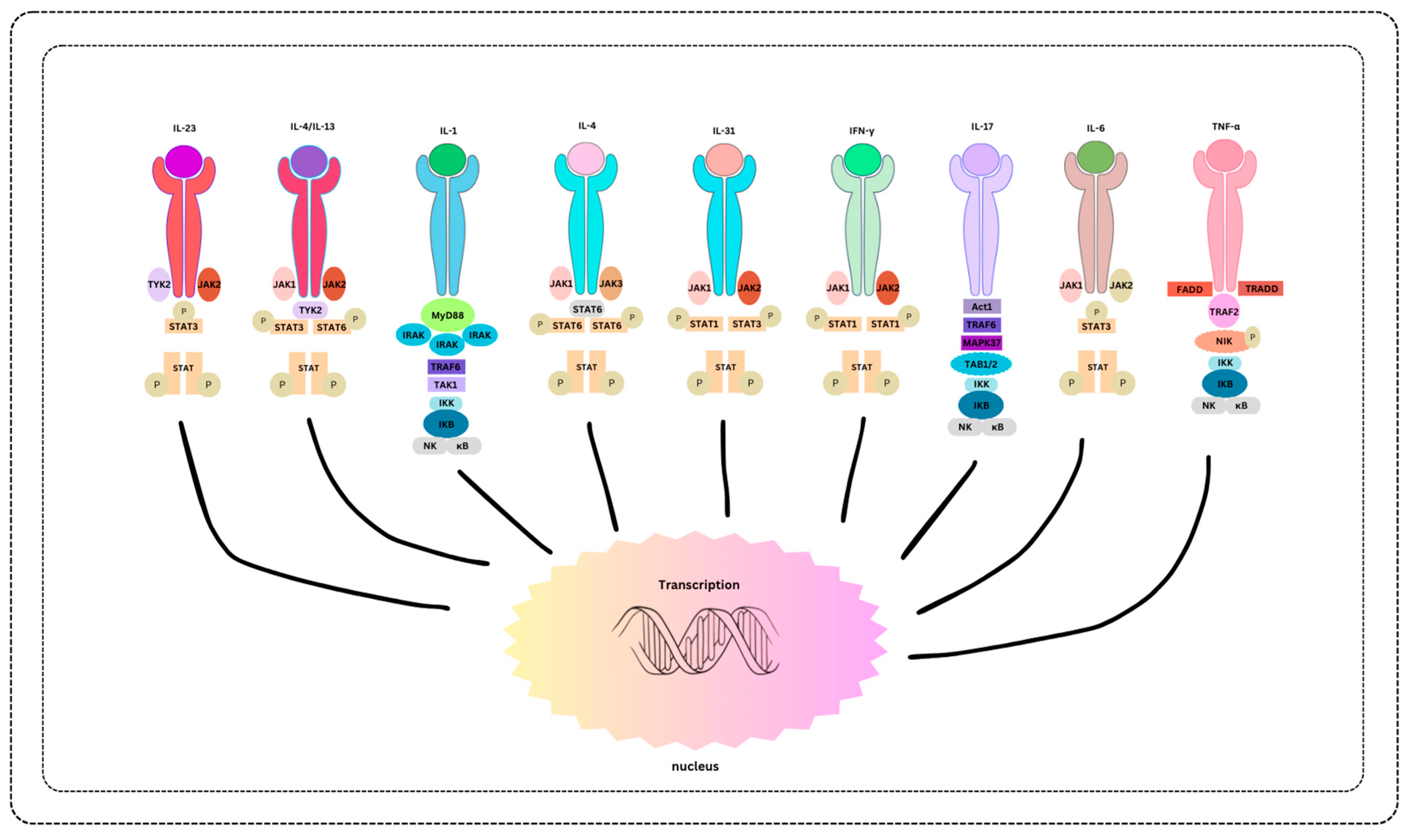Tan, Isabella J., Alicia Podwojniak, Aarushi Parikh, and Bernard A. Cohen. 2024. Current Issues in Molecular Biology 46, no. 4: 2975-2990. https://doi.org/10.3390/cimb46040186
Abstract
The evolution of personalized medicine in dermatology signifies a transformative shift towards individualized treatments, driven by the integration of biomarkers. These molecular indicators serve beyond diagnostics, offering insights into disease staging, prognosis, and therapeutic monitoring. Specific criteria guide biomarker selection, ensuring attributes like specificity, sensitivity, cost feasibility, stability, rapid detection, and reproducibility. This literature review, based on data from PubMed, SCOPUS, and Web of Science, explores biomarkers in Hidradenitis Suppurativa (HS), Psoriasis, Atopic Dermatitis (AD), Alopecia Areata (AA), Vitiligo, and Chronic Spontaneous Urticaria (CSU). In HS, TNF-α, IL-1β, and MMPs serve as biomarkers, influencing targeted therapies like adalimumab and anakinra. Psoriasis involves biomarkers such as TNF-α, IL-23, and HLA genes, shaping treatments like IL23 and IL17 inhibitors. AD biomarkers include ECP, IL-4, IL-13, guiding therapies like dupilumab and tralokinumab. For AA, lipocalin-2, cytokines, and genetic polymorphisms inform JAK inhibitors’ use. Vitiligo biomarkers range from cytokines to genetic markers like TYR, TYRP1, guiding treatments like JAK inhibitors. CSU biomarkers encompass IgE, cytokines, and autologous serum tests, influencing therapies like omalizumab and cyclosporine. Comparing conditions, common proinflammatory markers reveal limited specificity. While some biomarkers aid diagnosis and standard treatments, others hold more scientific than clinical value. Precision medicine, driven by biomarkers, has shown success in skin malignancies. Future directions involve AI-powered algorithms, nanotechnology, and multi-omics integration for personalized dermatological care.

No comments:
Post a Comment